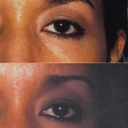Plastic Surgeon vs. Cosmetic Surgeon
When researching the best plastic surgeons in New York, patients may become confused about terms. Plastic surgeon? Cosmetic surgeon? Facial plastic surgeon?
Many people use these titles interchangeably, including doctors. It can be difficult to evaluate the credentials and experience of a surgeon you might choose to work with. Let us help.
Plastic Surgeons and Certification
To use the title “plastic surgeon” correctly, a doctor must complete at least five years of surgical residency following medical school, with a minimum of two years focused specifically on plastic surgery. During this training, residents have the chance to perform both reconstructive and cosmetic procedures.
The best way to ensure your plastic surgeon has completed this training is to choose a doctor certified by the American Board of Plastic Surgery (ABPS). To achieve certification, plastic surgeons who have finished residency must complete two years of successful practice, then pass rigorous written and oral exams. They are also required to present examples of the cases they have treated after completion of residency.
Another way to learn more about your surgeon’s background is to look for membership in the American Society of Plastic Surgeons and/or the American Society for Aesthetic Plastic Surgery. Those professional organizations accept only ABPS-certified plastic surgeons.
Non-ABPS Certified Cosmetic Surgeons
In private practice, virtually every plastic surgeon performs cosmetic procedures. Thus, every plastic surgeon can also be thought of as a cosmetic surgeon.
But not every cosmetic surgeon is a plastic surgeon. Surprising as it may be, there are no formal requirements to meet before a doctor can perform cosmetic surgery. Dermatologists, gynecologists, general surgeons, urologists and even podiatrists and others offer cosmetic procedures across the country. Some have undergone additional training and have acquired a reasonable amount of expertise in their areas. Sometimes, however, the additional training is only a weekend course in “how to do it.” Doctors can advertise cosmetic procedures and say they are “board certified” without indicating in which field they are certified. It’s hard for a patient to know just what they’re getting when working with a surgeon who is not ABPS-certified.
Which Medical Board?
There are only two-dozen boards accredited by the American Board of Medical Specialties (ABMS). These 24 specialty boards—jointly approved by the ABMS and American Medical Association—include the American Board of Plastic Surgery. Some non-ABPS certified cosmetic surgeons have no professional certification at all. Some are board certified in another specialty recognized by the ABMS, such as Obstetrics and Gynecology. Some have formed their own board of cosmetic surgery—not recognized by the ABMS—with minimal requirements for membership but impressive certificates to hang on the wall.
Other Specialties
There are other specialists you’ll find as you research top plastic surgeons in the NYC metro area or elsewhere, such as oculoplastic surgeons and facial plastic surgeons. In some cases, a doctor who focuses on one field, such as ophthalmology, may pursue additional training so he or she can perform related procedures such as eyelid lifts. For eyelid surgery, this type of doctor may be appropriate.
In other cases, there is a rigorous program associated with the specialty, such as board certification in Otolaryngology/Head and Neck Surgery, which includes reconstructive and cosmetic training for facial surgery. Some of these surgeons go on to achieve additional board certification in facial cosmetic surgery and become quite accomplished in their specific area.
Ask Questions
The bottom line? Patients must look beyond titles and look into certification to see what it all means:
- Ensure you understand the training your surgeon has completed
- Be certain their background matches the procedure you’re considering
- Find out which boards have certified your surgeon
- Investigate what the certification process entails
Above all else, ask questions. Do not be shy about probing into your prospective surgeon’s background—he or she should welcome your interest.







